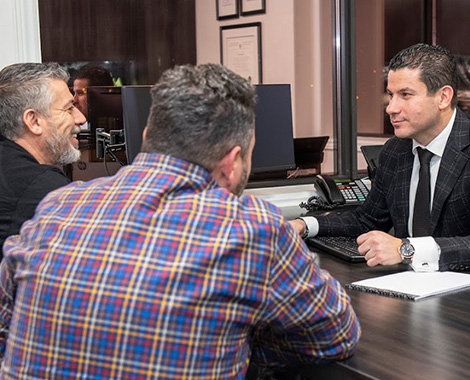
T,he dreaded “TAX AUDIT”. A word that few taxpayers are happy to hear in relation to them or their business. A CRA Tax Audit can cost a person significantly in terms of cash, time, effort, and emotions. But, what is an “AUDIT” by the Canada Revenue Agency (“CRA”) and what can you expect?
An Audit is merely the CRA’s way of confirming that your filings are correct and that you are, therefore, paying your fair share of taxes. There are many reasons why you may have been selected for a Tax Audit by the CRA, usually based on assessments of risk, and there are many types of audits. No matter the reason or the type of audit, the most important thing is to respond promptly, seek advice, and cooperate by providing information (as directed or assisted by your advisor). The initial letter letting you know that you’ve been selected for an audit will set out the scope of the audit. It may be as simple as a request for specific receipts or documents, or as invasive as asking you to prepare records for an audit at your home or place of business (or maybe at the CRA offices).
Success will depend on how well you keep records, how easily you can access records, and how well informed you are about the tax rules applicable to the circumstances being investigated. Unlike most other times where citizens and the state face off, it is up to you to provide proof of your income and deductions. In other words, you have to prove that your filings are correct, otherwise the CRA auditor can use a net-worth method to come up with your taxable income. If an audit is or turns into a net-worth audit, giving rise to a net-worth assessment, you may have a long hard fight on your hands.
The time it takes to complete a CRA tax audit differs based on the number of years being audited, the complexity of your affairs, and other factors. Once the auditor has finished his or her investigation and calculations, you may either find that the CRA agrees with your filings or, more commonly, that the auditor thinks that you either forgot to include amounts in income or should note have deducted certain expenses from income. When this happens, you will receive an audit proposal and, if you don’t convince the auditor that your filing is correct, a notice of reassessment with taxes and interest owing. Depending on the circumstances, the auditor may also assess penalties.
This article is part of a series that is here to help taxpayers understand more about CRA audits. The next article covers net-worth audits, and the final article of this series will cover your rights and obligations during an audit. Although these articles provide a more detailed guide than most they, like for all things in life that are complicated, cannot provide an answer for your particular circumstances or for all cases. Always consult with a tax professional to see what expenses are deductible, when, and to what extent in your circumstances.



FAQS
How does the CRA pick who to audit?
Risk assessment is the primary basis for the Canada Revenue Agency (CRA) to do an audit. To choose a file for audit, the CRA uses risk indicators for determination. These indicators include the frequency or likelihood of errors in tax returns. Any indication of tax obligations non-compliance is also another indicator. Before an audit, the information on a candidate’s file for audit is checked and then compared with other similar files or data from other investigations or audits. After further assessment, they either pursue the audit or not.
How far back can the CRA audit?
There is no statute of limitation to how far back the CRA can audit for as long as they can find reasonable grounds for doing so. Common reasons for audit are for the CRA to believe in cheating or fraud in filing past tax incomes. It also includes suspicious entries and other irregularities. Generally, according to the regulations, an individual or business must keep tax records for up to six years. The documents can either be hard copies or soft copies and should be readily available when required.
What does an auditor examine during audits?
The auditor will check any information available at the CRA during an audit, including credit history, tax returns filed, and property details. They will also look into your records like credit card statements, mortgage documents, and bank statements. If you own a business, the auditor will check your business financial and accounting records for correctness. The audit will determine if you have paid your taxes accordingly, followed tax rules, and received the benefits and refund you are entitled to.


